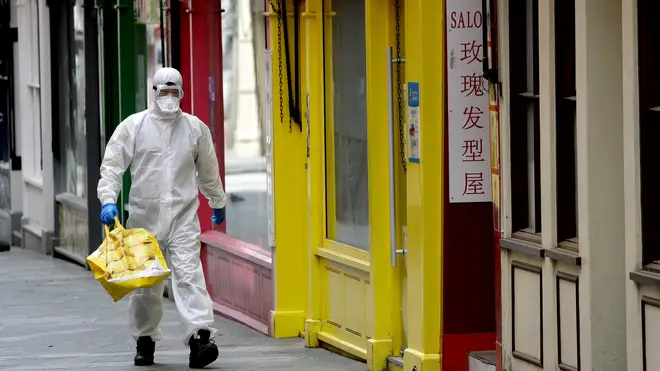
Ian Payne 4am - 7am
7 May 2020, 05:46

With Boris Johnson to set out the country's "roadmap" out of lockdown on Sunday, which could start as early as next week, many people are asking what will happen next.
The Prime Minister took the unprecedented step to lockdown the country on March 23 in an attempt to limit the spread of coronavirus.
After six weeks of restricted movement on April 30, the PM confirmed the UK had passed the peak of its first coronavirus outbreak. This was the first sign the Government was giving serious thought about how to end the measures that had been imposed.
On Sunday Mr Johnson will address the nation to announce his plans to ease the restrictions, which could start as early as Monday.
But what will and won't go back to normal straight away? Here are some of the changes that could be made as early as next week.
It appears initial changes will focus on the amount of time people are allowed to spend outside.
Public Health England has signalled the "stay home" message could be abandoned and reports suggest that those using benches, having picnics or sunbathing will no longer be asked to move on, provided they keep two metres apart.
It means families may even be allowed to travel to the countryside for walks and day trips, as long as they follow social distancing rules.
Matt Hancock suggested on Wednesday that outdoor "pavement cafes" could be put in place over the summer which, if successful, may prompt further use in future.
Employees in non-essential industries who have been operating from home may well be allowed to return to work, with the Government expected to call for masks to be worn on public transport during busy periods.
Businesses wanting employees to return to the office could be made to stagger shifts, put up signs asking workers to stay two metres apart and ensure there are hand-washing facilities, hand gel and PPE supplies readily available.
Bus and train timetables are likely to be adjusted and increased to help the system cope initially with the increase in passengers.
An economic think tank has also suggested that increasing peak-time ticket prices on London's Tube and buses could help manage passenger numbers.
Other areas of transport may see more eco-friendly changes, and some London boroughs have announced plans to widen pavements and close roads, bringing about what Boris Johnson has called "a new golden age for cycling".
Meanwhile, fast-food franchises including McDonalds and KFC have already announced they will begin opening locations for delivery services, with more and more sites likely to reopen in the coming weeks.
And many sporting events such as football matches are set to begin the transition by staging events behind closed doors, or at "neutral venues" as early as June - an option Matt Hancock says he is "absolutely open to."
Listen & subscribe: Global Player | Apple Podcasts | Google Podcasts | Spotify
Despite the potential easing, life is unlikely to return to normal for a while and ministers have warned that Britons may have to get used to a "new normal".
Social distancing measures and stricter hygiene rules are likely to remain in place in many places for the foreseeable to ensure that the disease is kept under control.
Supermarkets and other high street shops are also likely to continue with measures such as floor markings to keep customers apart, while also using screens, visors and gloves to safeguard staff members.
The use of virtual teaching is also likely to continue, as uncertainty still remains about whether school and university students will begin the new academic year in September in person, or remotely.
When children do return to school, class sizes could be limited as well as new, alternative classroom layouts and staggered break times to keep pupils and teachers safe.
It is also unlikely international travel will get back to normal any time soon, but airports are looking at introducing precautions to ensure passengers can be kept safe when more widespread travel does resume.
Heathrow Airport has already said it will introduce temperature screening, which will initially be used to monitor arriving passengers in immigration halls but could also be deployed in areas for departures, connections and airport staff search